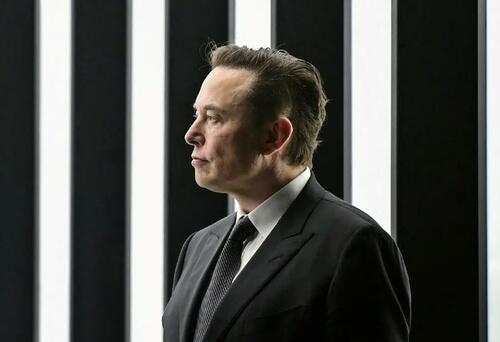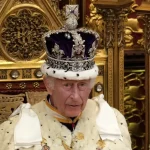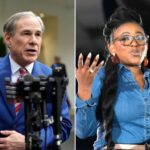
Authored by Gary Bai via The Epoch Times,
Elon Musk asked the U.S. Supreme Court to undo a part of a deal he made with the Securities and Exchange Commission (SEC) that required vetting of his online posts, alleging that the deal violates his free speech rights, Mr. Musk’s lawyer, Ellyde Thompson, confirmed with The Epoch Times on Thursday.
The billionaire businessman asked the high court in a Dec. 7 petition to hear his appeal of a lower court's decision in May that upheld a 2018 consent decree that he negotiated with the SEC, escalating a years-long feud between the industrialist and the powerful regulatory agency to the nation’s highest court.
The consent decree resulted from settlement negotiations of a 2018 lawsuit brought by the federal agency against Mr. Musk, which alleged that Mr. Musk made "false and misleading" statements to investors when he posted on Twitter (now X) in August of that year that he had "funding secured" to take private his electric car company, Tesla.
The terms of the consent decree, to which Mr. Musk agreed, stipulate that Mr. Musk steps down as the then-chairman of Tesla; Mr. Musk and Tesla each pay a civil penalty of $20 million; and that Mr. Musk obtain pre-approval from a securities lawyer before publishing written statements about Tesla or its shareholders.
In February 2019, the SEC alleged that Mr. Musk violated that deal when he posted on Twitter, “Tesla made 0 cars in 2011, but will make around 500k in 2019,” and sought contempt sanctions, which included fines and potential imprisonment.
After a few court proceedings, the two parties resolved the contempt sanctions, but Mr. Musk sought to quash the SEC's consent decree, arguing that the SEC had exploited the decree to “punish protected speech” because Mr. Musk is an "outspoken and much-followed critic of the government generally, and the SEC specifically."
A Manhattan-based federal district court and later a federal appeals court both ruled in favor of the SEC, on the rationale that Mr. Musk could not revisit the speech-vetting deal because he previously agreed to the deal in the settlement with the SEC.
"Parties entering into consent decrees may voluntarily waive their First Amendment and other rights," wrote a three-judge panel in the Manhattan-based U.S. Court of Appeals for the Second Circuit in an August decision. "Had Musk wished to preserve his right to tweet without even limited internal oversight concerning certain Tesla-related topics, he had 'the right to litigate and defend against the [SEC’s] charges' or to negotiate a different agreement—but he chose not to do so."
Mr. Musk's Thursday filing takes issue with this point of law, contending that despite having agreed to the consent decree after negotiations with the SEC, the agency had no right to impose, as a condition of settling, a "gag rule" that they contend violated the U.S. Constitution's First Amendment constraints on governmental limits on free speech.
The petition asks the court to rule that "government settlements are not immune from constitutional scrutiny,” a decision Mr. Musk’s lawyer says would benefit “the hundreds of defendants who settle cases with the SEC each year” because they cannot afford to litigate.
The SEC consent decree “restricts Mr. Musk’s speech even when truthful and accurate,” Mr. Musk’s lawyers wrote in the petition to the Supreme Court. “It extends to speech not covered by the securities laws and with no relation to the conduct underlying the SEC’s civil action against Mr. Musk. And it chills Mr. Musk’s speech through the never-ending threat of contempt, fines, or even imprisonment for otherwise protected speech if not pre-approved to the SEC’s or a court’s satisfaction.”
The district and appeal courts’ ruling “squarely conflicts” with past U.S. Supreme Court decisions,” they added, “and it vests administrative agencies with intolerable power to coerce private parties into relinquishing their constitutional rights.”
Four of nine U.S. Supreme Court justices would need to agree to hear the case for it to advance to oral arguments.
Separately, the New Orleans-based Fifth U.S. Circuit Court of Appeals has agreed to reconsider its March decision that Musk violated federal labor law by posting on Twitter in May 2018 that Tesla employees would lose stock options if they joined a union. The Fifth Circuit is set to hear arguments in the case in January 2024.
The SEC did not immediately respond to a request for comment from The Epoch Times.
Authored by Gary Bai via The Epoch Times,
Elon Musk asked the U.S. Supreme Court to undo a part of a deal he made with the Securities and Exchange Commission (SEC) that required vetting of his online posts, alleging that the deal violates his free speech rights, Mr. Musk’s lawyer, Ellyde Thompson, confirmed with The Epoch Times on Thursday.
The billionaire businessman asked the high court in a Dec. 7 petition to hear his appeal of a lower court’s decision in May that upheld a 2018 consent decree that he negotiated with the SEC, escalating a years-long feud between the industrialist and the powerful regulatory agency to the nation’s highest court.
The consent decree resulted from settlement negotiations of a 2018 lawsuit brought by the federal agency against Mr. Musk, which alleged that Mr. Musk made “false and misleading” statements to investors when he posted on Twitter (now X) in August of that year that he had “funding secured” to take private his electric car company, Tesla.
The terms of the consent decree, to which Mr. Musk agreed, stipulate that Mr. Musk steps down as the then-chairman of Tesla; Mr. Musk and Tesla each pay a civil penalty of $20 million; and that Mr. Musk obtain pre-approval from a securities lawyer before publishing written statements about Tesla or its shareholders.
In February 2019, the SEC alleged that Mr. Musk violated that deal when he posted on Twitter, “Tesla made 0 cars in 2011, but will make around 500k in 2019,” and sought contempt sanctions, which included fines and potential imprisonment.
After a few court proceedings, the two parties resolved the contempt sanctions, but Mr. Musk sought to quash the SEC’s consent decree, arguing that the SEC had exploited the decree to “punish protected speech” because Mr. Musk is an “outspoken and much-followed critic of the government generally, and the SEC specifically.”
A Manhattan-based federal district court and later a federal appeals court both ruled in favor of the SEC, on the rationale that Mr. Musk could not revisit the speech-vetting deal because he previously agreed to the deal in the settlement with the SEC.
“Parties entering into consent decrees may voluntarily waive their First Amendment and other rights,” wrote a three-judge panel in the Manhattan-based U.S. Court of Appeals for the Second Circuit in an August decision. “Had Musk wished to preserve his right to tweet without even limited internal oversight concerning certain Tesla-related topics, he had ‘the right to litigate and defend against the [SEC’s] charges’ or to negotiate a different agreement—but he chose not to do so.”
Mr. Musk’s Thursday filing takes issue with this point of law, contending that despite having agreed to the consent decree after negotiations with the SEC, the agency had no right to impose, as a condition of settling, a “gag rule” that they contend violated the U.S. Constitution’s First Amendment constraints on governmental limits on free speech.
The petition asks the court to rule that “government settlements are not immune from constitutional scrutiny,” a decision Mr. Musk’s lawyer says would benefit “the hundreds of defendants who settle cases with the SEC each year” because they cannot afford to litigate.
The SEC consent decree “restricts Mr. Musk’s speech even when truthful and accurate,” Mr. Musk’s lawyers wrote in the petition to the Supreme Court. “It extends to speech not covered by the securities laws and with no relation to the conduct underlying the SEC’s civil action against Mr. Musk. And it chills Mr. Musk’s speech through the never-ending threat of contempt, fines, or even imprisonment for otherwise protected speech if not pre-approved to the SEC’s or a court’s satisfaction.”
The district and appeal courts’ ruling “squarely conflicts” with past U.S. Supreme Court decisions,” they added, “and it vests administrative agencies with intolerable power to coerce private parties into relinquishing their constitutional rights.”
Four of nine U.S. Supreme Court justices would need to agree to hear the case for it to advance to oral arguments.
Separately, the New Orleans-based Fifth U.S. Circuit Court of Appeals has agreed to reconsider its March decision that Musk violated federal labor law by posting on Twitter in May 2018 that Tesla employees would lose stock options if they joined a union. The Fifth Circuit is set to hear arguments in the case in January 2024.
The SEC did not immediately respond to a request for comment from The Epoch Times.
Loading…




